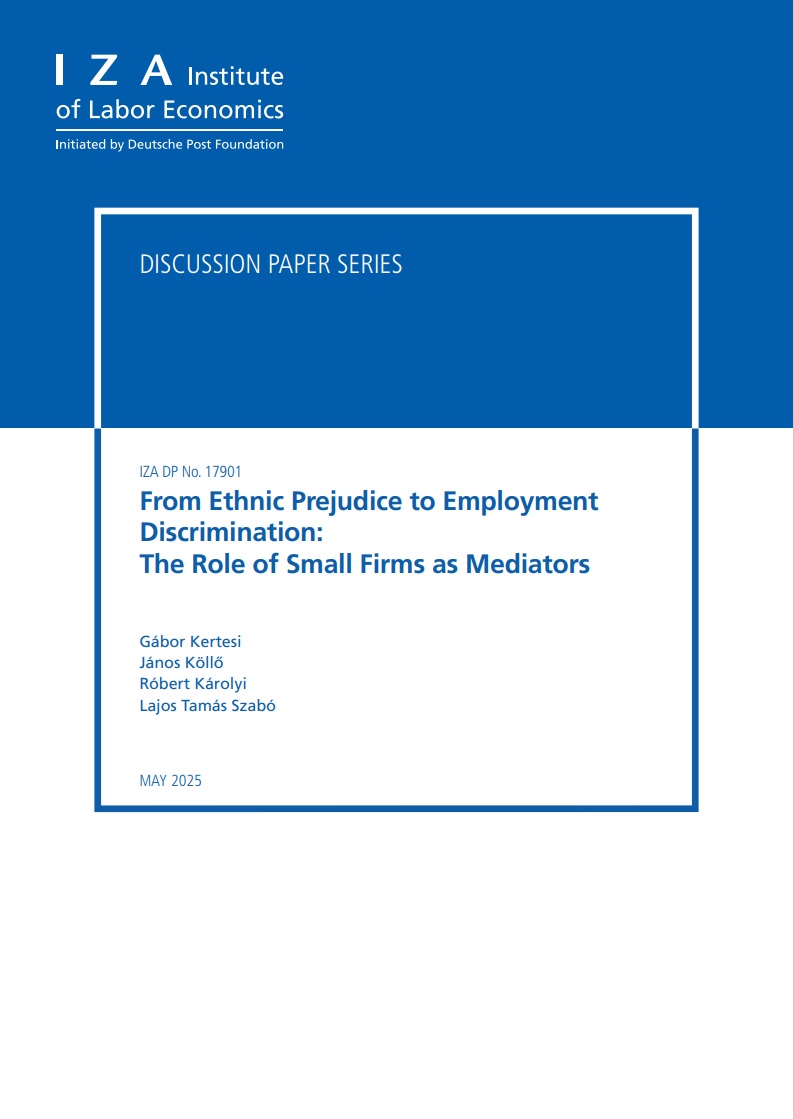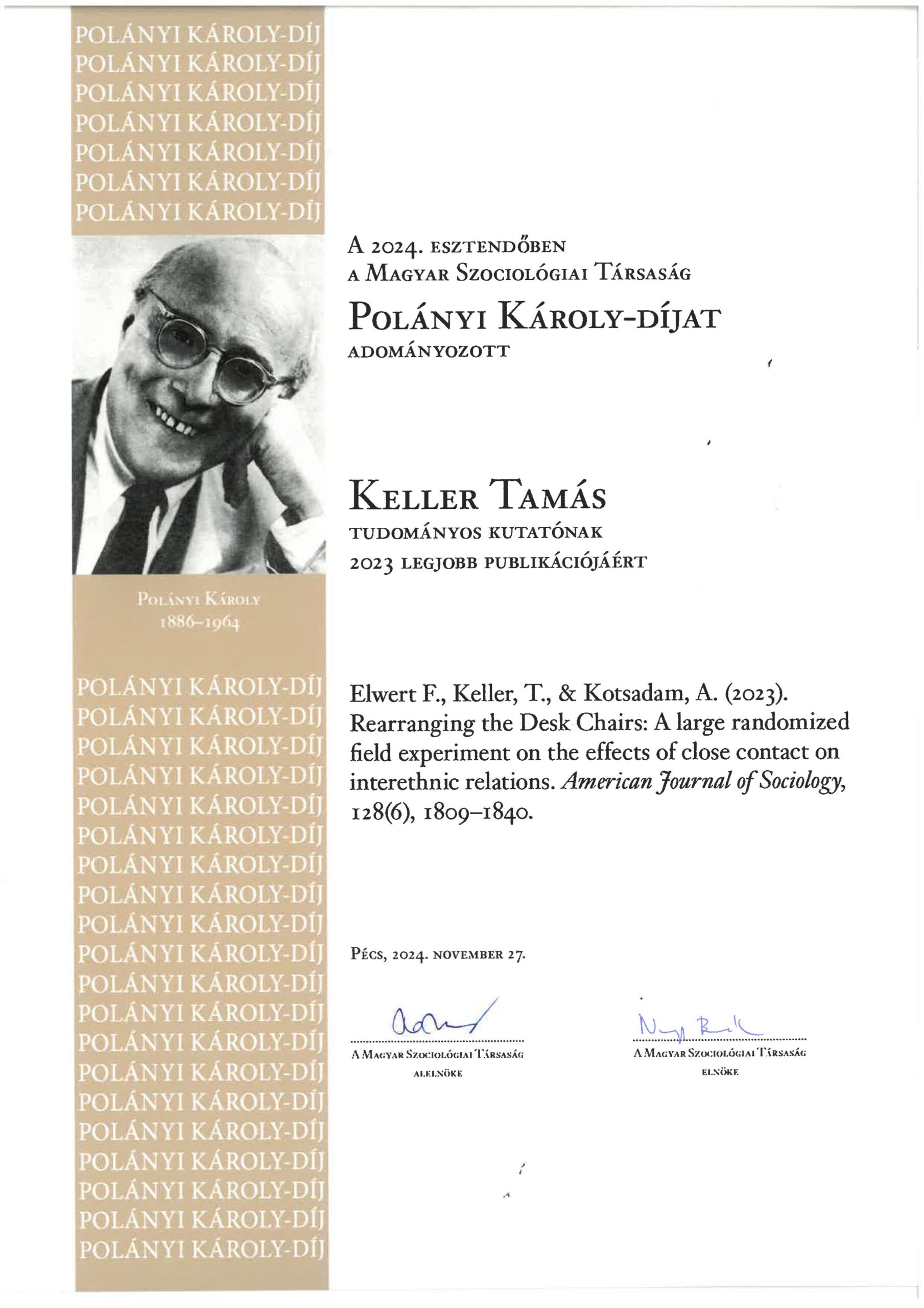Odd Paths, Cycles, and T-Joins : Connections and Algorithms

Ildikó Schlotter – András Sebő SIAM Journal on Discrete Mathematics, Vol. 39. No. 1. (2025) p. 484-504. Abstract: Minimizing the weight of an edge set satisfying parity constraints is a challenging branch of combinatorial optimization as witnessed by the binary hypergraph chapter of Alexander Schrijver’s book [Combinatorial Optimization, Springer-Verlag, 2003, Chapter 80]. This area contains relevant […]
The Rise of Linked Employer-Employee Panel Data: Where Are We Now?
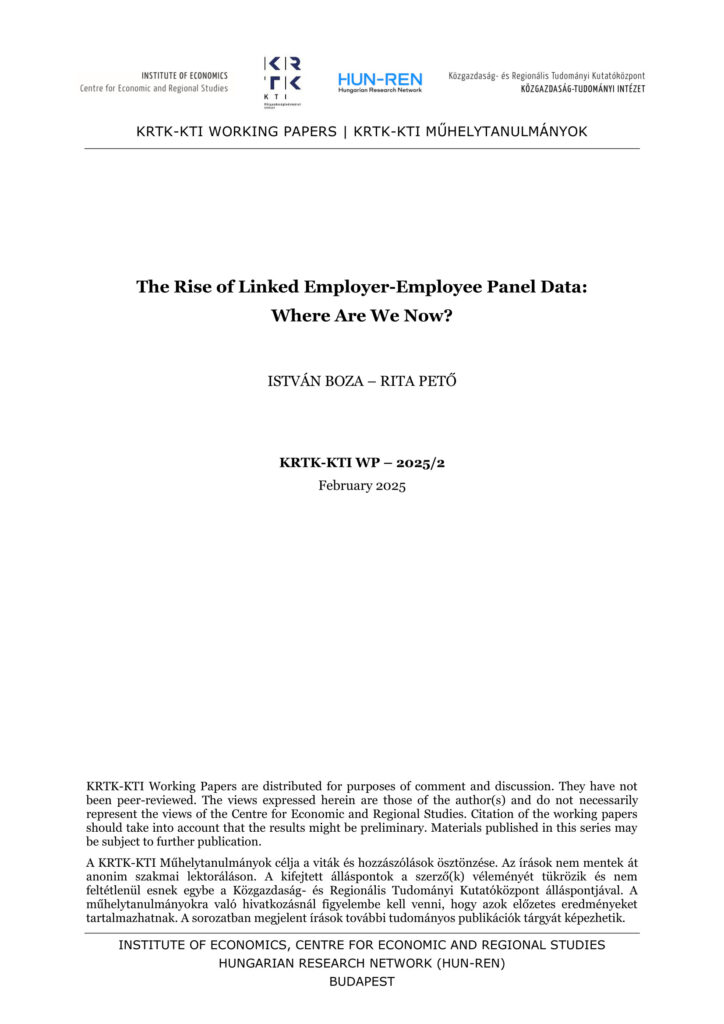
In recent decades, one of the most significant advancements in empirical labor economics was the emergence of longitudinal linked employer-employee datasets. This paper aims to provide a snapshot of this data revolution. With LEE panels now available in over 30 countries, we survey their general availability and key characteristics. Beyond common features, we highlight the […]
Job relatedness, local skill coherence and economic performance: a job postings approach

Martin Henning – Rikard Eriksson – Petrus Garefelt -Hanna Martin – Zoltán Elekes Regional Studies, Regional Science, Vol. 12. No. 1. (2025) p. 95-122. ABSTRACT The local presence and composition of skills is commonly thought to have enormous implications for economic development. Yet, skills and the relations between them are notoriously difficult to pinpoint and measure. […]
Computational complexity of k-stable matchings

Haris Aziz – Gergely Csáji – Ágnes Cseh ACM Transactions on Economics and Computation, Vol. 13. No. 1. Paper 5. 25 p. (2025) Abstract We study deviations by a group of agents in the three main types of matching markets: the house allocation, the marriage, and the roommates models. For a given instance, we call […]
Partitioned matching games for international kidney exchange
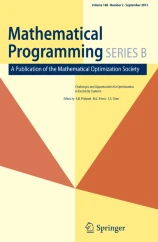
Márton Benedek – Péter Biró – Walter Kern – Dömötör Pálvölgyi & Daniel Paulusma Mathematical Programming Full Length Paper, Series A, Published: 11 February 2025 Abstract We introduce partitioned matching games as a suitable model for international kidney exchange programmes, where in each round the total number of available kidney transplants needs to be distributed amongst the participating […]
From vodka to craft beer : the craft beer revolution in the Baltic states
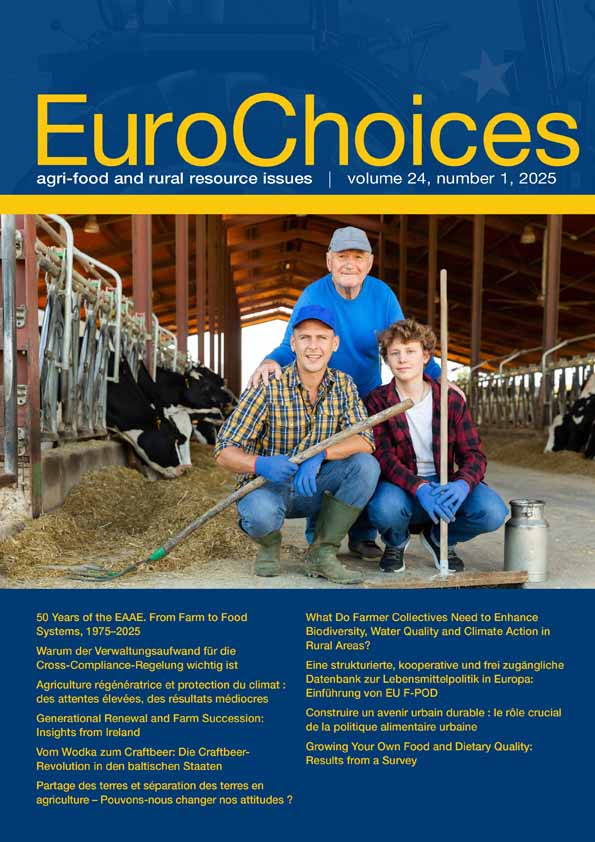
Imre Fertő – Ants-Hannes Viira – Aldona Stalgiené – Zoltán Bakucs Eurochoices, Vol. 24. No. 1. pp. 36-42. (2025) Summary The once flourishing beer sector of the Baltic states was decimated and homogenised into low-quality mass-produced beer during Soviet times. Against this background, the article examines the micro- and craft beer scenes in the Baltic States, exploring […]
Revisiting the Dunning-Kruger effect: composite measures and heterogeneity by gender
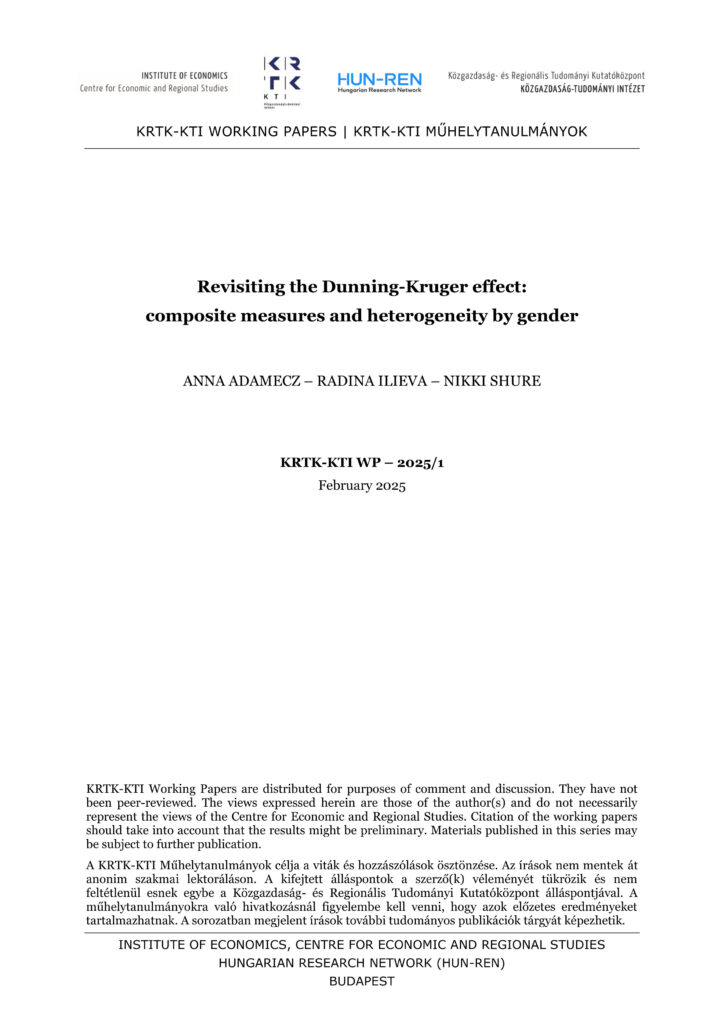
The Dunning-Kruger effect (DKE) states that people with lower levels of the ability tend to self-assess their ability less accurately than people with relatively higher levels of the ability. Thus, the correlation between one’s objective cognitive abilities and self-assessed abilities is higher at higher levels of objective cognitive abilities. There has been much debate as […]
The effect of positive feedback on primary school students’ academic self-concept: Gender heterogeneity in a light-touch randomized intervention
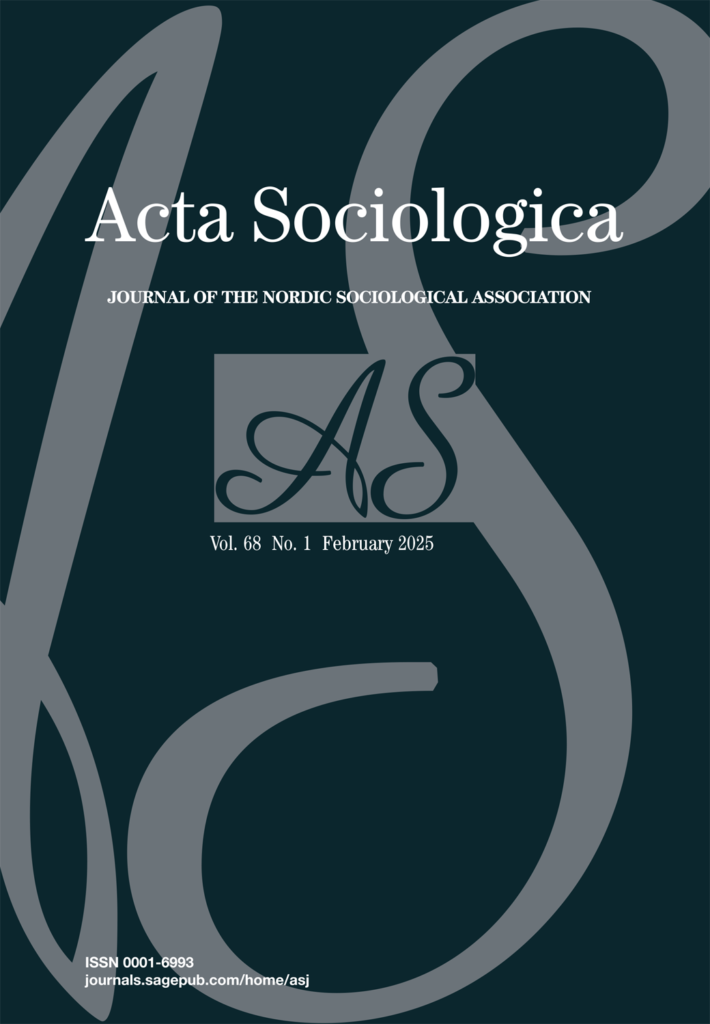
Tamás Keller Acta Sociologica Online first First published online January 31, 2025 Abstract This study analyzes the causal effect of positive feedback on students’ task-specific math self-concept using data from a randomized field experiment conducted among rural Hungarian primary school students. It examines how academic self-concept (ASC) responds to the smallest possible dose of positive feedback—a […]
How to measure consumer’s inconsistency in sensory testing?
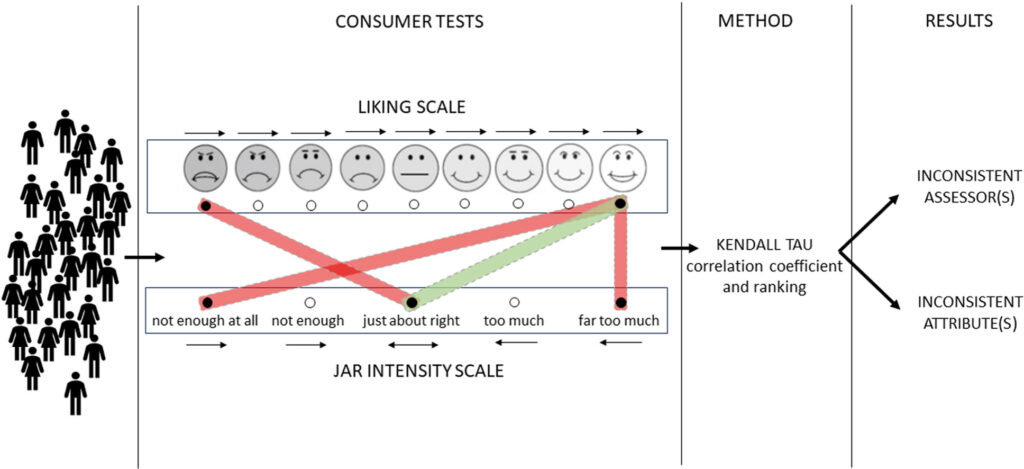
László Sipos – Kolos Csaba Ágoston – Péter Biró – Sándor Bozóki – László Csató Current Research in Food Science, 100982 Vol. 10. (2025), Available online 28 January 2025 Abstract Consumer sensory testing is the basis for determining directions of product development in the food industry. However, while compliance assessment by trained and expert assessors is well developed, few […]
The effects of a disability employment quota whencompliance is cheaper than defiance
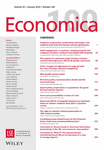
Judit Krekó – Álmos Telegdy Economica Early view, First published: 24 January 2025 Abstract This paper evaluates the effects of the Hungarian disability employment quota, which requires firms over a size threshold to employ individuals with disabilities or pay a non-compliance tax. In 2010, the tax was raised from very low levels to 170% of […]
The effect of air pollution on fertility in 657 European regions
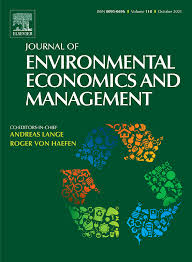
Árpád Stump – Ágnes Szabó-Morvai Journal of Environmental Economics and Management In Press, Journal Pre-proof, Available online 20 January 2025 Abstract This study examines the impact of ambient air pollution on birth rates in Europe. We estimate the causal effect of air pollution on fertility by utilizing variations in wind speed and the number of heating […]
Cultural Homophily and Collaboration in Superstar Teams

Gábor Békés – Gianmarco I. P. Ottaviano Management Science, Articles in Advance Published Online: 20 Jan 2025 Abstract One may reasonably think that cultural homophily, defined as the tendency to associate with others of similar culture, affects collaboration in multinational teams in general but not in superstar teams of professionals at the top of their industry. […]


